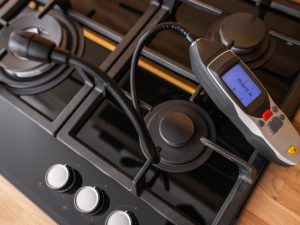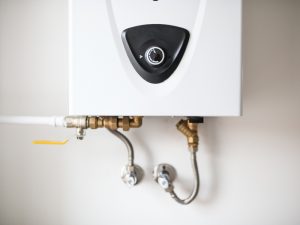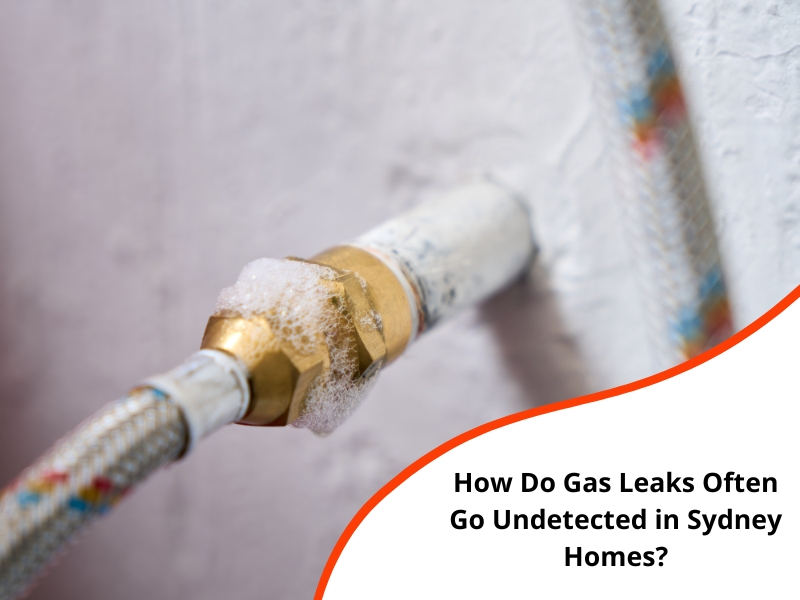Gas leaks in homes can be a hidden danger, especially in bustling cities like Sydney. These leaks can lead to serious health risks and potential safety hazards if undetected. Whether due to aging systems, poor maintenance, or unnoticed signs, gas leaks often go unnoticed for long periods. This article will explore the causes of gas leaks, why they usually remain undetected, and how to protect your home from this hidden danger.
What are the common causes of gas leaks?
Gas leaks can be caused by various factors, from the wear and tear of old appliances to faulty installation practices. Understanding these causes is key to preventing gas leaks in your home.
Common causes of gas leaks:
- Old or faulty appliances: Gas appliances like heaters, stoves, and water heaters can deteriorate over time, leading to leaks.
- Improper installation: Incorrectly installed gas lines or appliances may create weak points where gas escapes.
- Damaged gas pipes: Age, corrosion, or external factors like tree roots can damage gas pipes.
- Loose connections: Loose connections between gas lines and appliances can lead to leaks.
- Accidental impact: Heavy furniture or a shifting foundation can damage gas pipes.
Gas leaks can result from old appliances, damaged pipes, poor installation, or even minor impacts. Recognising signs that your appliance’s gas connector should be replaced is essential to avoiding hidden leaks.
Why do gas leaks often go undetected?
Gas leaks are not always easy to detect, especially in the early stages. They can often go unnoticed for extended periods, putting your home and health at risk.
Reasons gas leaks go undetected:
Reason | Explanation |
Small leaks | Minor leaks release minimal gas over time, making them hard to notice. |
Lack of odour | Chemical additives in gas can wear off, reducing detectability. |
Invisible gas | Natural gas is colourless and odourless, making it hard to detect without sensors. |
Hidden gas lines | Leaks in pipes behind walls or floors are difficult to locate without equipment. |
Faulty appliances | Appliances can leak gas without visible signs, requiring professional inspection. |
Gas leaks are often difficult to detect due to their small size, lack of noticeable odours, and hidden gas lines and appliances. It’s crucial to watch for signs of gas leaks that require immediate attention.
Can gas leaks occur even with new appliances?
Even new appliances can still experience gas leaks. Even with the latest technology, regular maintenance and checks are essential to ensure safety and prevent leaks.
Causes of gas leaks with new appliances:
- Manufacturing defects: Even newly installed appliances can have defects or faulty seals that allow gas to escape.
- Improper installation: Poor installation or incorrect connection of new appliances can lead to leaks.
- Incorrect settings: Appliances set incorrectly or operating at an unsafe level can increase the risk of gas leakage.
- Transport and handling damage: New appliances may be damaged during transport, leading to leaks.
- Factory warranty issues: Occasionally, factory-installed parts may fail prematurely, leading to leaks.

New appliances can still cause gas leaks due to manufacturing defects, poor installation, and other factors, highlighting the importance of professional installation.
How to detect a gas leak in your home?
Detecting a gas leak early is essential for ensuring your safety and the safety of your property. Here are some signs and methods you can use to detect a gas leak:
Methods to detect a gas leak:
- Smell: The most common way to detect a leak is through the distinctive smell added to natural gas. If you notice a sulphur-like or rotten egg smell, evacuate immediately.
- Sound: A hissing or whistling sound near your gas lines or appliances can indicate a leak.
- Visual signs: Look for bubbles in water, dead plants near gas lines, or discoloured ground around the gas pipes.
- Gas meter readings: Check your gas meter for unusual increases in consumption.
- Gas detectors: Install a gas leak detector for early detection and added peace of mind.
A gas leak can be detected through smell, sound, and visual signs, and a gas detector can be used for added security.
What are the health risks of an undetected gas leak?
The health risks associated with undetected gas leaks are serious. Prolonged exposure to even small amounts of gas can cause severe health problems.
Health risks of undetected gas leaks:
Health Risk | Description |
Carbon monoxide poisoning | Leads to nausea, dizziness, and, in severe cases, death. |
Respiratory issues | Causes shortness of breath, dizziness, headaches, and nausea. |
Chronic health problems | Prolonged exposure can result in asthma, cardiovascular issues, and other severe health conditions. |
Fire and explosion risk | Undetected gas leaks are flammable, leading to the potential for fires and explosions. |
Environmental impact | Gas leaks contribute to environmental pollution, harming wildlife and affecting the atmosphere. |
Gas leaks pose severe health risks, including carbon monoxide poisoning, respiratory issues, chronic fatigue syndrome (Myalgic Encephalomyelitis), and fire hazards. Early detection is key to protecting your health.
How does a gas leak affect the safety of your property?
An undetected gas leak is a health risk and a significant safety hazard to your property.
Impact of gas leaks on property safety:
- Fire risk: Gas leaks can ignite from even a small spark, causing fires or explosions.
- Structural damage: Prolonged exposure to gas can weaken structural components, increasing the risk of damage to your home.
- Damaged appliances: Gas leaks can damage appliances, rendering them unsafe or inoperable.
- Insurance issues: Unreported gas leaks may affect your insurance claims if damages occur.
Gas leaks compromise property safety by increasing fire risk, damaging appliances, causing structural harm, and leading to the different effects of gas leaks, further jeopardising the well-being of occupants.
Which areas in your home are most prone to gas leaks?
Certain areas in your home are more prone to gas leaks than others. Knowing where to focus your attention can help prevent undetected leaks.
Most prone areas for gas leaks:
- Kitchen: Gas stoves, ovens, and other kitchen appliances are common sources of gas leaks.
- Gas heaters: Any gas-powered heating system can develop leaks, especially in older units.

- Gas lines: External gas lines running to your home can be damaged by weather, age, or construction work.
- Laundry: Gas dryers and hot water systems may develop leaks over time.
- Basement or utility rooms: These areas often house gas appliances, which can be overlooked during routine inspections.
The kitchen, gas heaters, and laundry areas are most prone to gas leaks, especially in older systems or poorly maintained appliances.
How can you protect your home from undetected gas leaks?
Preventive measures can significantly reduce the risk of gas leaks in your home. Here’s how to protect your family and property.
Protective measures against gas leaks:
- Regular inspections: Have an expert gas leak detection service regularly inspect your gas appliances and pipes.
- Install gas detectors: Place gas detectors in key areas of your home to catch leaks early.
- Proper maintenance: Keep your appliances well-maintained and promptly replace old or faulty units.
- Educate your family: Teach everyone in your household how to detect gas leaks and what to do in case of an emergency.
- Know emergency procedures: Familiarise yourself with emergency procedures and how to turn off the gas supply if necessary.
Regular inspections, gas detectors, and proper maintenance can help prevent gas leaks and ensure your home remains safe.
Conclusion
Gas leaks in Sydney homes can be tricky to detect, but staying vigilant and taking proactive steps can keep your home and family safe. Regular inspections, proper maintenance, and gas detectors are simple yet effective ways to protect against gas leaks.
If you’re looking for reliable gas plumbing or heater services in Sydney, Apex Gas Heater Service is here to help.

